Your cart is currently empty!
Month: July 2024
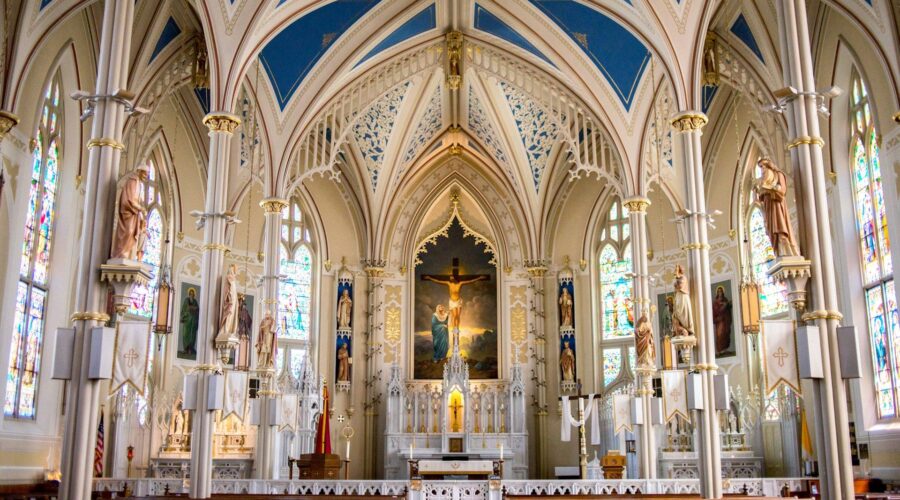
Discover the Holy Sepulchre: A Comprehensive Guide to Its History, Significance, and Architecture
Introduction
Nestled in the heart of Jerusalem’s Christian Quarter, the Church of the Holy Sepulchre stands as a sacred site of immense historical, theological, and architectural significance. Believed to mark the location of Jesus Christ’s crucifixion, burial, and resurrection, it is a site of pilgrimage and reverence for Christians around the world. This comprehensive guide delves into the rich history, profound symbolism, and intricate architecture of the Holy Sepulchre.
Historical Significance
Biblical Accounts and Early History
According to Christian tradition, the Holy Sepulchre marks the site of Jesus’ crucifixion at Golgotha, his entombment in a tomb, and his miraculous resurrection. The first recorded evidence of the site’s veneration dates back to the 4th century when Emperor Constantine the Great decreed the construction of a basilica over the tomb.
Constantine’s Basilica and Subsequent Developments
Constantine’s basilica, known as the Martyrium, was a grand structure that enclosed the tomb and the rock upon which it was believed Jesus was crucified. Over the centuries, the structure underwent numerous modifications and renovations, including additions such as the Dome of the Holy Sepulchre and the Chapel of St. Helena.
Theology and Symbolism
The Tomb and the Resurrection
The heart of the Holy Sepulchre is the Aedicule, a small shrine that houses the tomb of Jesus. It is revered as the place where Jesus’ body was interred and from where he rose from the dead on the third day. The resurrection of Jesus is central to Christian beliefs and is symbolized by the light that is annually emitted from the Aedicule during the Easter vigil.
The Cross and the Instruments of the Passion
Within the Holy Sepulchre are also enshrined the instruments of Jesus’ passion, including the crown of thorns and fragments of the true cross. These relics hold significant symbolic value, representing the suffering and sacrifice of Jesus for humankind’s salvation.
Architectural Features
The Rotunda and the Dome
The Rotunda, a grand circular structure, dominates the interior of the Holy Sepulchre. Above it stands the Dome of the Holy Sepulchre, a towering symbol of the basilica. Constructed by the Crusaders in the 12th century, the dome is an architectural marvel that adds to the awe and reverence of the site.
The Ambulatory and Chapels
Surrounding the Rotunda is an ambulatory or passageway that leads to various chapels and side altars. These chapels represent different Christian denominations and hold significance in their own right. Some notable chapels include the Chapel of St. Helena (traditionally believed to mark the burial site of Constantine’s mother), the Chapel of the Angels (honoring the appearance of an angel to the women at Jesus’ tomb), and the Chapel of the Syrophoenician Woman (remembering the Gospel account of Jesus’ encounter with a woman from Tyre).
Exterior and Landscaping
The exterior of the Holy Sepulchre is characterized by a series of medieval entrances, stone carvings, and courtyards. The courtyards provide access to the various entrances and offer visitors a glimpse into the history and architectural diversity of the site. The landscaping around the Holy Sepulchre includes olive trees and other greenery, symbolizing the gardens where Jesus is said to have spent his final hours.
Significance and Impact
Pilgrimage and Veneration
The Holy Sepulchre is a major destination for Christian pilgrims worldwide. Pilgrims come from far and wide to walk the Via Dolorosa (the path Jesus is believed to have taken to his crucifixion), pray in the chapels, and witness the annual Easter vigil. The site’s powerful spiritual and emotional resonance has drawn countless pilgrims throughout history.
Inter-Denominational Importance
The Holy Sepulchre is shared by several Christian denominations, including the Greek Orthodox Church, the Armenian Apostolic Church, the Roman Catholic Church, and the Coptic Orthodox Church. Each denomination has its own specific areas of the church and follows its own liturgical traditions. This shared custodianship reflects the site’s inter-denominational significance and the unity of Christian faith.
Cultural and Historical Heritage
Beyond its religious importance, the Holy Sepulchre is a treasure trove of cultural and historical heritage. Its architecture, art, and relics provide insights into the artistic and cultural expressions of different eras and civilizations. The site has been a subject of study for historians, scholars, and architects, contributing to our understanding of the evolution of Christian art and architecture.
Conclusion
The Church of the Holy Sepulchre is a multifaceted site of immense historical, theological, and architectural significance. Its association with Jesus Christ’s crucifixion, burial, and resurrection makes it a destination of profound spiritual importance for Christians worldwide. The intricate symbolism, diverse architectural features, and shared custodianship of the Holy Sepulchre reflect the richness and diversity of Christian faith. As a living testament to the events that shaped Christianity, the Holy Sepulchre continues to inspire awe, reverence, and pilgrimage for generations to come.
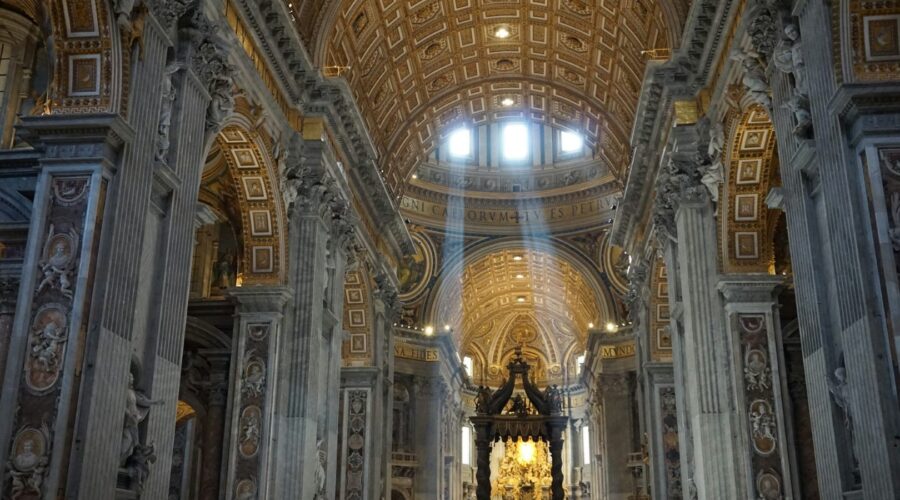
Pastor Rick: A Comprehensive Guide to His Life, Ministry, and Impact
Introduction
Pastor Rick Warren is an American evangelical pastor, author, and theologian. He is the founding pastor of Saddleback Church in Lake Forest, California, one of the largest megachurches in the United States. Warren is well-known for his books, including “The Purpose Driven Life,” which has sold over 30 million copies worldwide.
Early Life and Education
Rick Warren was born in San Jose, California, on January 24, 1954. He grew up in a Christian home and attended church regularly. After graduating from high school, Warren attended California Baptist University and Southwestern Baptist Theological Seminary.
Founding Saddleback Church
In 1980, Warren founded Saddleback Church in a small movie theater in Lake Forest, California. The church quickly grew, and within a few years, it had moved to a larger facility. Today, Saddleback Church has over 30,000 members and is one of the most influential churches in the United States.
The Purpose Driven Life
In 2002, Warren published his book “The Purpose Driven Life.” The book was an immediate bestseller and has since sold over 30 million copies worldwide. The book has been translated into over 80 languages and has been used by churches around the world to help people discover their purpose in life.
Other Ministries
In addition to his work at Saddleback Church, Warren is also involved in a number of other ministries. He is the founder of the PEACE Plan, which is a global initiative to promote peace and reconciliation. He is also the author of several other books, including “The Daniel Plan” and “The Hope for Hurting Hearts.”
Controversies
Warren has been involved in a number of controversies over the years. In 2013, he was criticized for his decision to invite former President Barack Obama to speak at Saddleback Church. He was also criticized for his support of same-sex marriage.
Conclusion
Pastor Rick Warren is one of the most influential religious leaders in the United States. His books and ministries have impacted the lives of millions of people around the world. Warren is a controversial figure, but he is also a man of deep faith and compassion.
Table of Contents
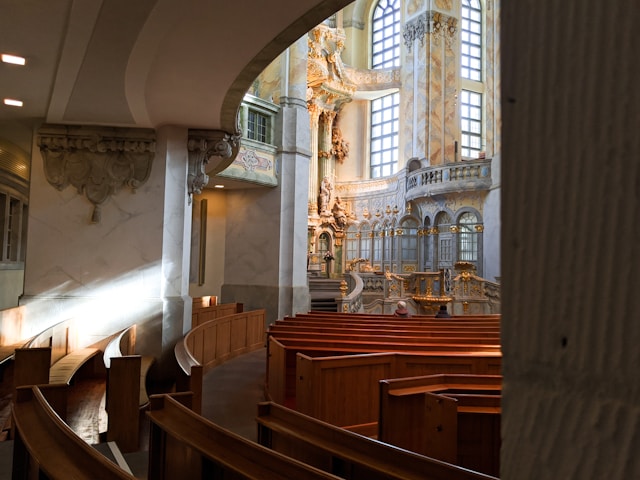
Elevate Your Spiritual Journey: A Comprehensive Guide to Good Friday Services Near You
Introduction
Good Friday holds profound significance for Christians worldwide, commemorating the crucifixion and death of Jesus Christ. This solemn day calls for a reflective and reverent approach, and attending a Good Friday service can provide a meaningful way to connect deeper with the spirit of the occasion.
Good Friday: Significance and Traditions
Significance of Good Friday
Good Friday marks the culmination of Holy Week, remembering the day when Jesus Christ was crucified. It is believed that through his sacrifice, mankind is offered salvation and eternal life.
Traditional Good Friday Practices
Good Friday is typically observed with:
- Solemn church services
- Fasting and abstinence
- Penitential rituals, such as the Stations of the Cross
Finding Good Friday Services Near You
Search Online Directories
Begin by searching online directories like Google Maps or Yelp using keywords such as “Good Friday services near me” or “Easter services near me.”
Check Local Churches
Visit the websites of local churches or contact them directly to inquire about their Good Friday service schedules.
Utilize Church Locator Websites
Websites like Church Finder and Christianity.com allow you to search for churches by location and service type.
Explore Community Centers and Non-Denominational Groups
Some community centers and non-denominational groups may also host Good Friday services that are open to the public.
Types of Good Friday Services
Traditional Church Services
These services typically follow a liturgical format, featuring hymns, readings from the Bible, prayers, and a sermon.
Contemporary Services
Contemporary services often incorporate modern music and worship styles, making them more accessible to a wider audience.
Ecumenical Services
Ecumenical services involve collaboration among different denominations, allowing participants from diverse backgrounds to come together in shared worship.
What to Expect at a Good Friday Service
Solemn and Reflective Atmosphere
Good Friday services are generally characterized by a somber and reflective atmosphere, fostering a sense of reverence and introspection.
Focus on Jesus’ Sacrifice
The service will center on the sacrifice of Jesus Christ and its significance for believers.
Communion (Optional)
Many Good Friday services include Holy Communion, a symbolic act of remembrance and unity.
Tips for Attending a Good Friday Service
Dress Appropriately
Consider wearing modest and respectful attire.
Arrive Early
Give yourself ample time to arrive and find a comfortable seat.
Be Respectful
Be mindful of the somber nature of the service and observe any guidelines for silence or reverence.
Engage in Prayer and Reflection
Take time to reflect on the significance of Good Friday and pray for guidance and inspiration.
Benefits of Attending a Good Friday Service
Deepen Your Spiritual Connection
Connecting with others in worship and contemplation strengthens your spiritual bond.
Find Meaning in the Sacrifice
Attending a Good Friday service allows you to reflect on the profound meaning of Jesus’ sacrifice and its impact on your life.
Experience a Sense of Community
Sharing in this solemn occasion with fellow believers fosters a sense of unity and community.
Conclusion
Attending a Good Friday service is a meaningful way to commemorate the sacrifice of Jesus Christ and deepen your spiritual connection. By exploring the various types of services available near you and following our tips, you can find a service that resonates with your beliefs and enriches your observance of this solemn day.
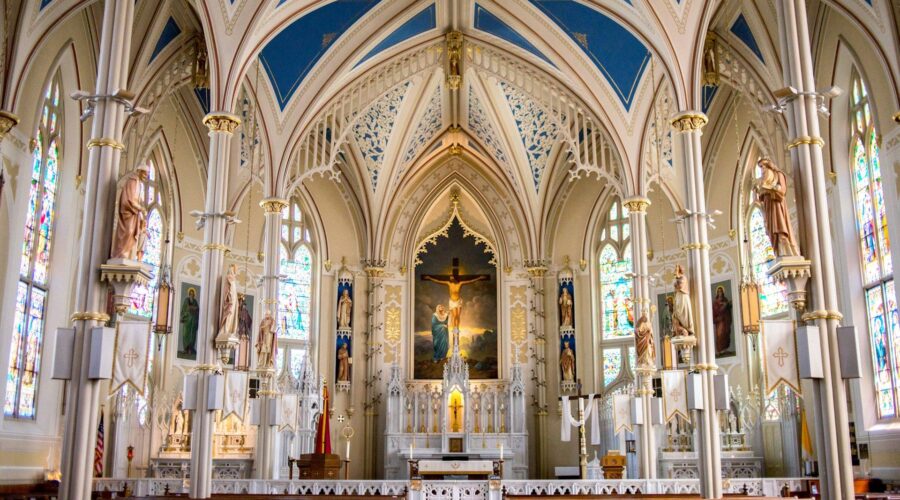
Brave Church: A Comprehensive Guide to Understanding and Becoming a Member
Introduction
Brave Church is a non-denominational Christian church located in various cities across the United States. It is known for its contemporary worship style, its focus on community, and its commitment to social justice.
This comprehensive guide will provide you with an overview of Brave Church, its core beliefs, and how to become a member. We will also explore the church’s history, mission, and impact on the community.
Core Beliefs
- The Bible is the inspired and authoritative Word of God.
- God is the Creator of all things.
- Jesus Christ is the Son of God who came to die for our sins and rose from the dead.
- The Holy Spirit is the third person of the Trinity who indwells believers.
- The Church is the body of Christ and is called to make disciples of all nations.
Becoming a Member
To become a member of Brave Church, you must first attend a membership class. These classes are designed to help you learn more about the church’s beliefs and values.
Once you have completed the membership class, you will be asked to fill out a membership application. This application will ask for your basic information, such as your name, address, and email address.
Once your application has been processed, you will be welcomed into the church as a full member. You will be given a membership card and a copy of the church’s constitution and bylaws.
History
Brave Church was founded in 2001 by Pastor Mark Driscoll. The Church started with just a handful of people but quickly grew into one of the largest churches in the United States.
In 2014, Pastor Driscoll resigned from Brave Church due to allegations of plagiarism and bullying. The church has since been led by a team of pastors, including Pastor Tarran Randolph and Pastor Anthony Evans.
Mission
Brave Church’s mission is to “make disciples who make disciples.” This mission is based on the Great Commission, which is found in Matthew 28:19-20.
Impact on the Community
Brave Church has had a significant impact on the community. The church has started multiple social justice initiatives, including a homeless shelter, a food pantry, and a tutoring program.
The church has also been a vocal advocate for social justice issues, such as racial reconciliation and immigration reform.
Conclusion
Brave Church is a dynamic and growing church that is committed to making a difference in the world. If you are looking for a church home, Brave Church is a great place to start.
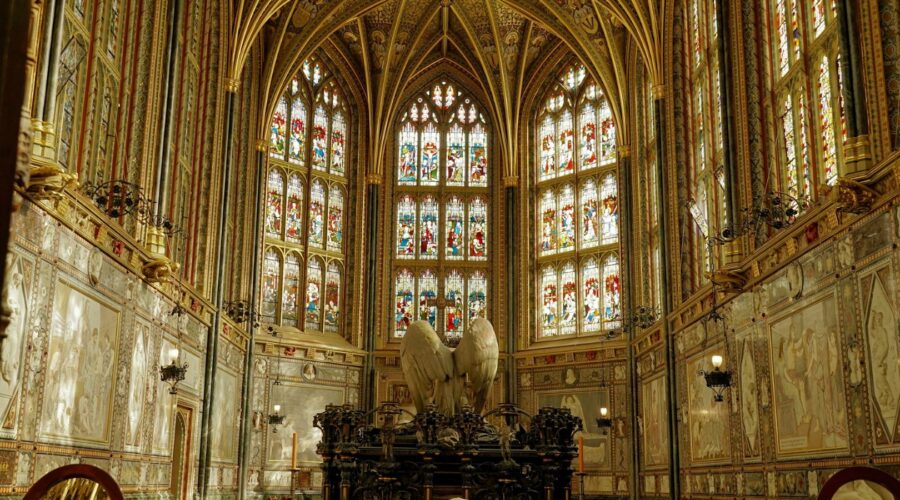
Elevate Your Spiritual Journey: A Comprehensive Guide to Sunday Service
Introduction
Sunday service is a cornerstone of many religious and spiritual practices, offering individuals a sanctuary for contemplation, connection, and growth. It encompasses a wide range of traditions, rituals, and practices that vary across different faiths and denominations. In this comprehensive guide, we will delve into the multifaceted world of Sunday service, exploring its significance, essential elements, and impact on personal and spiritual well-being.
The Meaning and Importance of Sunday Service
Sunday service holds profound significance within religious and spiritual communities. It serves as a sacred time and space where:
- Community is Cultivated: Sunday service provides a venue for individuals to gather, connect, and foster a sense of belonging within their faith community.
- Spiritual Connection is Deepened: Through worship, prayer, and reflection, participants can cultivate a deeper connection to their spirituality and the divine.
- Values are Reinforced: Sermons and teachings during Sunday service often address moral and ethical principles, reinforcing the core values of the faith tradition.
- Inspiration is Found: Inspiring messages and shared experiences can provide participants with motivation and guidance for their daily lives.
Essential Elements of Sunday Service
While specific practices vary among different faiths and denominations, Sunday services typically include core elements that contribute to their meaningful experience:
- Worship: Expressing reverence and adoration through hymns, songs, prayers, or other forms of devotional expression.
- Prayer: Offering petitions, thanksgivings, and intercessions to the divine.
- Sermon or Teachings: A discourse or reflection by a religious leader or speaker, often based on scripture or spiritual texts.
- Sacraments or Rituals: Performing specific rites or ceremonies that have symbolic or spiritual significance, such as communion, baptism, or anointing.
- Offerings: Giving of time, resources, or talents to support the faith community and its works.
Benefits of Attending Sunday Service
Regular attendance at Sunday service has been associated with numerous benefits for personal and spiritual well-being:
- Enhanced Sense of Community: Regular contact with fellow believers strengthens social bonds and provides a supportive network.
- Reduced Stress and Anxiety: The rituals, prayers, and messages during Sunday service can promote a sense of peace and reduce feelings of stress.
- Improved Emotional Health: Engaging in devotional practices and connecting with others can boost mood and promote emotional well-being.
- Increased Resilience: The teachings and support received during Sunday service can provide individuals with strength and resilience in the face of challenges.
- Enhanced Meaning and Purpose: Through worship, prayer, and reflection, individuals can explore their spirituality and find deeper meaning in their lives.
Tips for Making the Most of Sunday Service
To fully engage in and benefit from Sunday service, consider these tips:
- Arrive Prepared: Familiarize yourself with the service format, dress appropriately, and bring any necessary materials (e.g., Bible, hymnal).
- Be Present and Open: Set aside distractions and focus on the present moment, allowing yourself to be receptive to the message and experience.
- Participate Actively: Engage in singing, praying, and responding to prompts during the service to deepen your connection and involvement.
- Reflect and Apply: After the service, take time to reflect on the teachings and how you can apply them to your daily life.
- Connect with Others: Before or after the service, make an effort to connect with fellow attendees, expressing gratitude and sharing insights.
Conclusion
Sunday service is a vital aspect of many religious and spiritual traditions, offering profound opportunities for growth, connection, and inspiration. Through worship, teachings, rituals, and community, participants can deepen their spirituality, enhance their well-being, and find meaning and purpose in their lives. By embracing the principles and practices of Sunday service, individuals can embark on a transformative journey of personal and spiritual development.
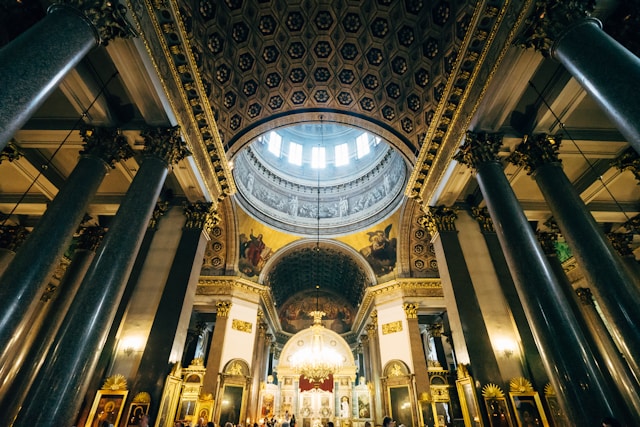
Unveiling the Seventh-day Adventist Faith: A Comprehensive Guide
Introduction
The Seventh-day Adventist Church is a Protestant Christian denomination with a distinctive set of beliefs centered on the imminent return of Jesus Christ. Tracing its roots to the mid-19th century Millerite movement, the denomination has grown into a global organization with a strong presence in education, healthcare, and humanitarian work.
Core Beliefs
The Sabbath
The seventh day Sabbath is one of the foundational teachings of Seventh-day Adventism. Adventists believe that the seventh day of the week, from sunset on Friday to sunset on Saturday, is a special day of rest and worship ordained by God at Creation.
The Second Coming
Adventists believe that Jesus Christ will return to earth soon to establish the Kingdom of God. They emphasize the signs of the times and the need for spiritual preparation for this event.
The Sanctuary Doctrine
The Sanctuary Doctrine is a unique Adventist belief that explains the work of Christ as High Priest in the heavenly sanctuary. Adventists believe that Christ’s death on the cross represented His sacrifice in the most holy place, and His intercession there is an ongoing process.
A Healthy Lifestyle
Adventists emphasize the importance of a healthy lifestyle as a reflection of their belief in the wholeness of the human person. They advocate for a vegetarian or plant-based diet, regular exercise, and abstaining from harmful substances.
Organization and Mission
Church Structure
The Seventh-day Adventist Church is organized into regions, or “divisions,” which are further subdivided into conferences, missions, and local churches. Each level of organization has its own elected leadership.
Mission
The Adventist Church is committed to spreading the good news of Jesus Christ and preparing people for His second coming. This mission is carried out through evangelism, education, healthcare, and humanitarian work.
Education and Healthcare
Education
Education is highly valued in Seventh-day Adventism. The church operates a global network of schools and universities, including Andrews University, Loma Linda University, and Oakwood University.
Healthcare
Adventists have a long history of involvement in healthcare. The denomination operates hundreds of hospitals, clinics, and nursing homes worldwide, providing comprehensive medical care to patients.
Humanitarian Work
The Seventh-day Adventist Church is actively involved in humanitarian work through organizations such as the Adventist Development and Relief Agency (ADRA).
Challenges and Controversies
Like any religious organization, Seventh-day Adventism has faced its share of challenges and controversies over the years. These include:
- The Great Disappointment of 1844
- The question of women’s ordination
- Evolution and the acceptance of modern science
Conclusion
The Seventh-day Adventist Church is a vibrant and diverse Christian denomination known for its distinctive beliefs, including the Saturday Sabbath, the emphasis on health and lifestyle, and the belief in the imminent return of Jesus Christ. While it has faced challenges along the way, the Adventist Church continues to make a significant impact on the world through its mission of evangelism, education, healthcare, and humanitarian work.
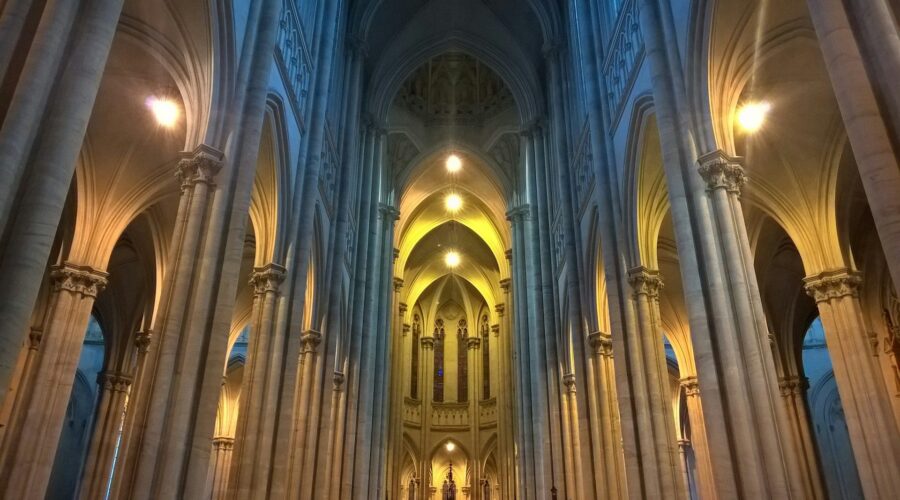
Live Mass: A Comprehensive Guide for Catholics
What is Live Mass?
Live Mass is a Catholic Mass that is streamed or broadcast in real-time, allowing individuals to participate from the comfort of their homes or on the go.
It offers a convenient way to connect with the Church and receive the sacraments, especially for those who are unable to attend Mass in person due to physical limitations, travel, or other commitments.
Benefits of Live Mass
- Convenience: Participate in Mass from anywhere with an internet connection.
- Accessibility: Helps those who may face physical, geographical, or scheduling barriers to attend in-person Mass.
- Spiritual Enrichment: Provides an opportunity for spiritual growth and connection, regardless of location.
- Community Building: Can help connect with other Catholics, even from a distance.
- Supplemental Option: Complements in-person Mass attendance and enriching one’s faith journey.
Finding a Live Mass
Various parishes, dioceses, and organizations offer live Masses. Here are some options:
Participating in Live Mass
To participate in Live Mass:
- Find a reliable platform that offers live Mass.
- Gather necessary materials, such as a rosary and prayer book (optional).
- Create a dedicated space for prayer and focus.
- Log in to the platform and join the Mass.
- Participate actively by responding, praying, and reflecting, as you would in an in-person Mass.
- Prepare in Advance: Set aside time for reflection and prayer before joining.
- Create a Sacred Space: Choose a quiet and comfortable location for your Live Mass.
- Focus on the Liturgy: Minimize distractions and give your full attention to the Mass.
- Engage Actively: Participate in the prayers, respond to the readings, and reflect on the homily.
- Extend the Experience: Spend time after Mass in prayer, reading, or meditation to continue your spiritual growth.
Tips for a Meaningful Live Mass Experience
Live Mass vs. In-Person Mass
While Live Mass offers many benefits, it cannot fully replace the in-person Mass experience:
Feature Live Mass In-Person Mass Convenience Accessible from anywhere with internet Requires physical presence at a church Immersive Experience Limited to audio-visual participation Involves all senses, including sight, sound, and smell Sacraments Cannot receive sacraments (e.g., Eucharist) Opportunity to receive Eucharist and other sacraments Community Building Limited social interaction Builds community through shared worship Spiritual Growth Can provide spiritual enrichment Usually more impactful due to the immersive experience Conclusion
Live Mass is a valuable tool for Catholics who wish to participate in the Mass from a distance. It offers convenience, accessibility, and spiritual enrichment. However, it is important to remember that it cannot fully replace the in-person Mass experience. By following the tips provided, Catholics can make the most of Live Mass and grow in their faith.
May this guide assist you in finding and participating in Live Mass, deepening your connection with the Church, and enriching your spiritual journey.
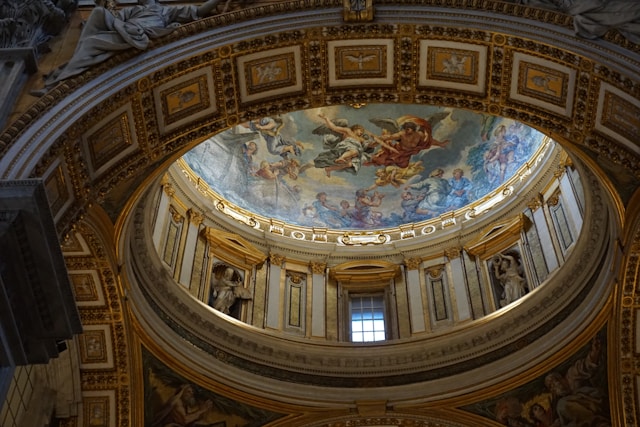
Water Baptism: A Step-by-Step Guide to Understanding and Receiving
Introduction
Water baptism is a significant religious practice that has been part of Christian tradition for centuries. It symbolizes the washing away of sins, the beginning of a new life in Christ, and the indwelling of the Holy Spirit. Understanding the meaning and process of water baptism is crucial for those considering taking this important step.
Meaning of Water Baptism
Water baptism is a physical representation of an internal spiritual transformation. It is not merely a ritual or a tradition, but a powerful symbol of the following:
- Repentance and Forgiveness: Baptism signifies a turning away from sin and acceptance of God’s forgiveness through the sacrifice of Jesus Christ.
- New Life: It represents a new beginning, a washing away of the old sinful nature and a rebirth into a new life with Christ.
- Holy Spirit: Baptism is often accompanied by the indwelling of the Holy Spirit, who empowers believers to live a Christian life.
Biblical Basis
The Bible provides numerous references to water baptism, including:
- Matthew 28:19-20: “Go therefore and make disciples of all nations, baptizing them in the name of the Father and of the Son and of the Holy Spirit, teaching them to observe all that I have commanded you.”
- Acts 2:38: “And Peter said to them, ‘Repent and be baptized every one of you in the name of Jesus Christ for the forgiveness of your sins, and you will receive the gift of the Holy Spirit.’”
Types of Baptism
There are several recognized forms of baptism:
- Immersion: This involves being completely submerged in water, representing a complete washing away of sins.
- Sprinkling: Water is sprinkled on the head, symbolizing the purification and cleansing of sins.
- Pouring: Water is poured over the head, representing the washing away of sins and the outpouring of the Holy Spirit.
Who Should Be Baptized?
According to Christian tradition, baptism is typically reserved for individuals who:
- Have personally repented of their sins and accepted Jesus Christ as their Savior.
- Understand the meaning and significance of baptism.
- Are willing to publicly confess their faith in Christ.
Process of Water Baptism
The process of water baptism typically involves the following steps:
- Preparation: The candidate is instructed about the meaning and significance of baptism and prepares spiritually.
- Immersion/Sprinkling/Pouring: The candidate is immersed in water, sprinkled with water, or water is poured over their head.
- Invocation: The person performing the baptism invokes the name of the Father, Son, and Holy Spirit.
- Blessing: The candidate is blessed and welcomed into the Christian community.
Benefits of Water Baptism
Water baptism offers numerous benefits for believers:
- Forgiveness of Sins: It is a visible representation of the forgiveness of sins and the cleansing of the soul.
- New Life: Baptism symbolizes the beginning of a new life in Christ, free from the burden of sin.
- Holy Spirit: It is often accompanied by the indwelling of the Holy Spirit, who empowers believers for Christian living.
- Unity: Baptism unites believers into the body of Christ, the Church.
- Testimony: It serves as a public declaration of faith and a testimony of God’s saving grace.
Tips for Candidates
For those considering baptism, here are some tips:
- Pray: Seek God’s guidance and preparation for baptism.
- Study: Understand the biblical basis, meaning, and significance of baptism.
- Find a Church: Connect with a Christian community that believes in water baptism and provides guidance.
- Prepare Spiritually: Repent of sins, forgive others, and prepare your heart for a new life in Christ.
- Dress Appropriately: Wear loose-fitting clothing that can be immersed in water.
Conclusion
Water baptism is a significant step in the Christian journey. It symbolizes the washing away of sins, the beginning of a new life in Christ, and the indwelling of the Holy Spirit. By understanding the biblical basis, meaning, and process of water baptism, individuals can prepare for and experience this powerful spiritual transformation. Remember, baptism is not merely a ritual but a journey of faith and renewal, as believers seek to live out their baptismal vows and follow Christ.
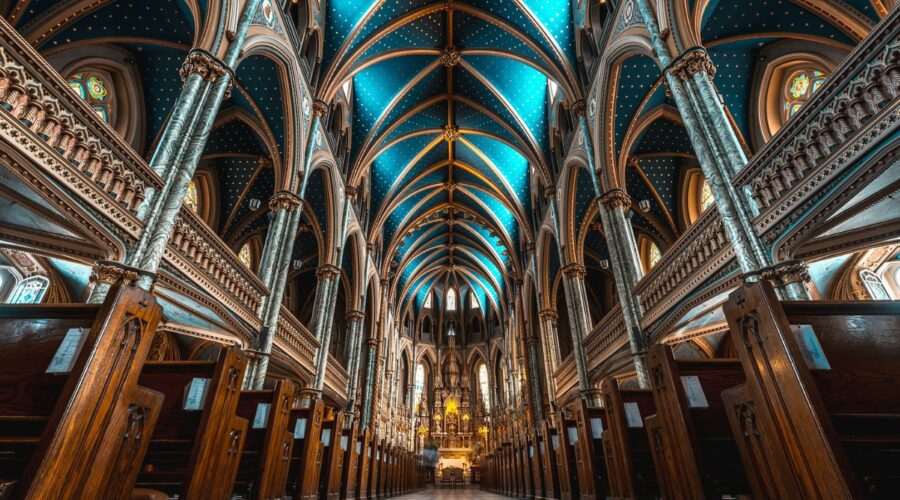
Discover the River of Life Church: Empowerment, Transformation, and Connection
Welcome to an in-depth exploration of the River of Life Church, a vibrant community dedicated to fostering spiritual growth, empowering individuals, and building transformative relationships. This comprehensive blog post will delve into the key aspects of the church, its mission, ministries, and the transformative experiences it offers.
Mission and Core Values
The River of Life Church stands on a mission to empower lives, transform communities, and glorify God. Its core values guide every aspect of its ministry:
- Empowerment: Equipping individuals to discover their gifts, develop their potential, and make a meaningful impact.
- Transformation: Fostering personal and spiritual growth through the transformative power of God’s Word and the Holy Spirit.
- Community: Creating a welcoming and supportive environment where individuals can connect, build relationships, and experience genuine love.
- Excellence: Striving for excellence in all aspects of ministry, from worship to discipleship, to honor God and inspire others.
Ministries
The River of Life Church offers a wide range of ministries that cater to the needs of individuals of all ages and backgrounds:
Children’s Ministry
- Nursery and preschool programs for infants and toddlers
- Exciting and interactive Sunday School classes for kids
- Fun and engaging summer camps
Youth Ministry
- Dynamic youth services on Fridays
- Leadership development programs
- Mentorship and discipleship opportunities
Adult Ministries
- Small groups for fellowship, study, and prayer
- Bible studies and workshops
- Marriage and family enrichment programs
Outreach Ministries
- Community outreach projects to serve those in need
- Mission trips to local and international destinations
- Partnerships with organizations dedicated to social justice
Transformative Experiences
At the River of Life Church, transformation is not just an aspiration but a lived reality:
Worship Services
Every Sunday, the church comes together for powerful and Spirit-filled worship services. Dynamic music, thought-provoking messages, and a vibrant atmosphere create an environment where individuals can connect with God, experience his presence, and receive encouragement and inspiration.
Discipleship Programs
The church emphasizes discipleship through various programs:
- LifeGroups: Small groups that provide a supportive environment for spiritual growth, accountability, and prayer
- Mentoring: Experienced members guide and support individuals in their faith journey
- Leadership Training: Programs designed to equip individuals to lead and serve in the church and community
Special Events
Throughout the year, the church hosts special events that bring the community together and inspire spiritual growth:
- Conferences: Gatherings with renowned speakers and leaders to explore specific topics and deepen faith
- Retreats: Opportunities for individuals to escape the hustle and bustle of life and focus on connecting with God
- Community Celebrations: Events that foster a sense of belonging and inspire unity within the church and the surrounding community
Connection and Community
The River of Life Church is more than a place of worship; it is a thriving community where individuals can connect with one another and build lasting relationships:
Prayer Network
A dedicated team of intercessors prays for the needs of individuals, families, and the community.
Support Groups
The church provides a safe and confidential space for individuals facing specific challenges, such as grief, addiction, or relationship issues.
Community Outreach
The church actively engages with the surrounding community through outreach programs, neighborhood events, and partnerships with local organizations.
Conclusion
The River of Life Church is a vibrant and dynamic community that empowers individuals, transforms lives, and builds authentic relationships. Through its mission, ministries, and transformative experiences, the church provides a welcoming and supportive environment where individuals can encounter God, grow in their faith, and make a positive impact on the world. Whether you are seeking spiritual guidance, a sense of community, or opportunities for personal growth, the River of Life Church invites you to join its journey of faith, hope, and transformation.
For more information or to connect with the River of Life Church, visit their website at riveroflife.org or follow them on social media:
- Facebook: facebook.com/riveroflifechurch
- Instagram: instagram.com/riveroflifechurch
- Twitter: twitter.com/riveroflifech
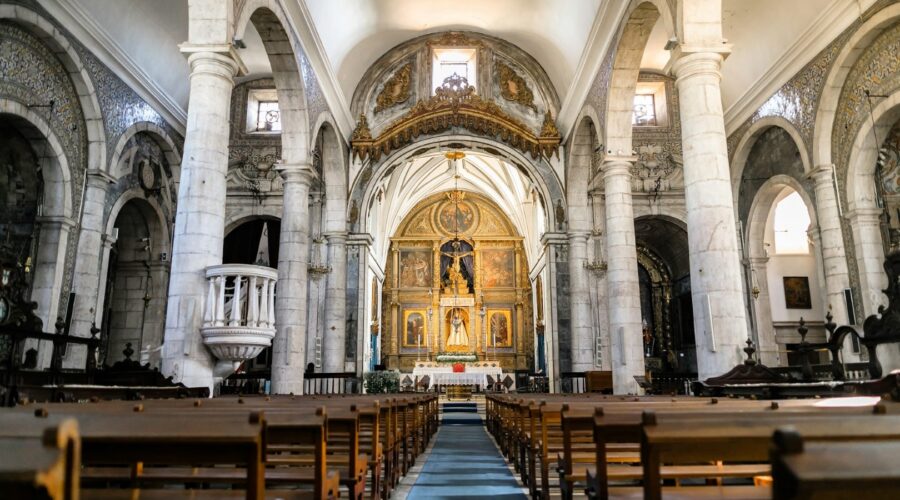
Discover the Welcoming Embrace of Faith Family Church: A Spiritual Oasis for Community and Growth
An Introduction to Faith Family Church
Nestled amidst a vibrant community, Faith Family Church stands as a beacon of faith, fostering a warm and welcoming atmosphere where spiritual growth and genuine connections thrive. Founded upon the cornerstone of God’s love, the church is dedicated to nurturing the spiritual journeys of its members, embracing diversity, and empowering individuals to live purpose-driven lives.
Core Beliefs
At the heart of Faith Family Church lies a steadfast commitment to these core beliefs:
- The Bible is the inspired and infallible Word of God.
- Jesus Christ is the Son of God and the Savior of the world.
- The Holy Spirit empowers believers to live a Christ-like life.
- The church is a family of believers united in faith and love.
Engaging Worship Services
Worship services at Faith Family Church are a symphony of praise, reflection, and inspiration. Each Sunday, the congregation gathers to celebrate their faith through:
Music
The vibrant worship band leads the church in uplifting contemporary and traditional hymns, creating an atmosphere that stirs hearts and invites seekers into the presence of God.
Sermons
Biblically-grounded sermons delivered by our experienced pastors provide practical insights, encourage spiritual growth, and challenge individuals to deepen their relationship with Christ.
Prayer
Time is set aside for heartfelt prayers, giving attendees the opportunity to connect with God, share their burdens, and experience His transformative grace.
Life-Changing Ministries
Beyond Sunday services, Faith Family Church offers a myriad of ministries designed to cater to the diverse needs and aspirations of its members.
Small Groups
Small groups provide a nurturing environment for fellowship, Bible study, and prayer. They offer a safe space for individuals to connect on a deeper level, grow in their faith, and support one another through life’s challenges.
Youth Programs
Faith Family Church recognizes the importance of youth development. Vibrant programs are tailored to engage young people through fun activities, mentorship, and faith-based teachings, equipping them to navigate the complexities of adolescence with a strong spiritual foundation.
Community Outreach
The church actively participates in community outreach programs, extending God’s love beyond its walls. Members volunteer their time, resources, and talents to make a tangible difference in the lives of those in need.
Building a Spiritual Family
Faith Family Church is more than just a place of worship; it’s a spiritual family where individuals can find acceptance, encouragement, and unwavering support.
Friendly Atmosphere
Warm smiles, heartfelt greetings, and a genuine sense of belonging permeate every corner of the church. Members strive to create an environment where everyone feels valued and welcomed, fostering a sense of community that transcends Sunday mornings.
Pastoral Care
Our dedicated pastors are available to provide confidential spiritual guidance, counseling, and support during times of need. They are committed to walking alongside individuals on their spiritual journeys, offering wisdom, encouragement, and prayer.
Mentorship Programs
Seasoned members serve as mentors, sharing their life experiences, faith journeys, and practical advice with younger members and seekers. This invaluable support empowers individuals to navigate life’s challenges with a faith-filled perspective.
Empowering Individuals for Purpose
At Faith Family Church, we believe that every individual is uniquely gifted and purposed by God. Through various programs and initiatives, the church aims to empower members to:
Discover Their Calling
Members are encouraged to explore their passions, talents, and interests through a variety of workshops, classes, and volunteer opportunities. These avenues help individuals identify their God-given gifts and discern their unique purpose in the world.
Develop Leadership Skills
Leadership development programs equip members with the skills and confidence necessary to lead effectively in various spheres of life, whether in the church, workplace, or community.
Serve with Passion
Faith Family Church fosters a culture of service, encouraging members to use their gifts to bless others and make a positive impact on the world. Volunteer opportunities abound, providing avenues for individuals to share their time, talents, and resources with those in need.
Growth Track: A Path to Spiritual Maturity
For those seeking to deepen their understanding of the faith and grow in their relationship with God, Faith Family Church offers a structured Growth Track program. Through this interactive journey, participants:
- Learn foundational biblical principles.
- Develop practical tools for Christian living.
- Gain insights into God’s purpose for their lives.
- Connect with mentors who provide guidance and support.
Conclusion
Faith Family Church is an oasis of faith where individuals and families can find a sense of belonging, spiritual growth, and empowerment. With engaging worship services, life-changing ministries, a welcoming atmosphere, and a commitment to helping each member discover their purpose, the church serves as a beacon of hope and transformation in the community and beyond. Whether you are a seasoned believer or seeking a place to explore your faith, Faith Family Church invites you to experience the transformative power of God’s love and embark on a journey of spiritual growth and purpose.
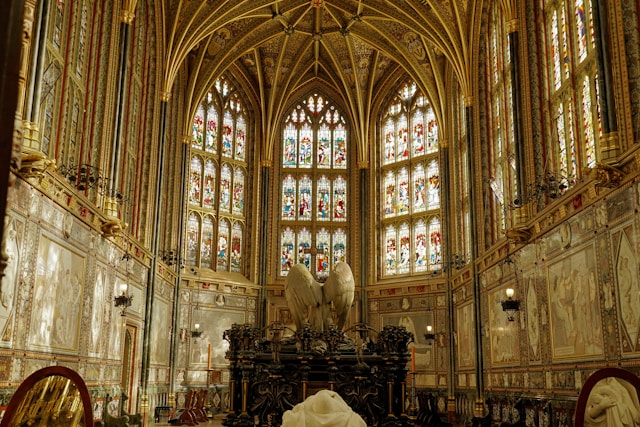
Pentecost Sunday: A Pentecost Sunday Guide for Believers
What is Pentecost Sunday?
Pentecost Sunday is a Christian holiday that celebrates the descent of the Holy Spirit upon the apostles and other followers of Jesus Christ, as described in the Acts of the Apostles. It is observed on the 50th day after Easter, and is one of the most important feasts in the Christian calendar.
The History of Pentecost Sunday
The origins of Pentecost Sunday can be traced back to the Jewish festival of Shavuot, which commemorated the giving of the Ten Commandments to Moses on Mount Sinai. In the early Church, Pentecost Sunday was observed as a time of prayer and fasting, and was often associated with the baptism of new converts.
The Meaning of Pentecost Sunday
Pentecost Sunday is a celebration of the coming of the Holy Spirit, which is seen as the fulfillment of Jesus’ promise to his disciples that he would send them a “helper” to guide them.
The Holy Spirit is believed to bring power, wisdom, and guidance to believers, and is seen as the source of the Church’s mission to spread the Gospel.
How Pentecost Sunday is Celebrated
Pentecost Sunday is celebrated in a variety of ways around the world. In many churches, the day is marked by special services, readings from the Acts of the Apostles, and the singing of hymns.
In some cultures, Pentecost Sunday is also associated with traditional customs, such as the wearing of red clothing or the eating of special foods.
The Significance of Pentecost Sunday
Pentecost Sunday is a significant holiday for Christians because it marks the beginning of the Church’s mission to spread the Gospel to the world.
The Holy Spirit is seen as the power behind the Church’s growth and success, and Pentecost Sunday is a time to celebrate the Spirit’s work in the world.
How to Celebrate Pentecost Sunday
There are many ways to celebrate Pentecost Sunday. Here are a few ideas:
- Attend a special Pentecost Sunday service at your church.
- Read the account of Pentecost in the Acts of the Apostles.
- Sing hymns and songs that celebrate the Holy Spirit.
- Pray for the outpouring of the Holy Spirit in your own life and in the world.
- Share the Gospel with others.
Conclusion
Pentecost Sunday is a joyous celebration of the coming of the Holy Spirit. It is a day to reflect on the Spirit’s work in the world, and to pray for the Spirit’s continued guidance in our own lives.
Additional Resources

Unveiling the Rich History and Impact of Second Baptist Church
A Legacy of Faith and Community
Second Baptist Church is a beacon of faith and community, with a rich history that spans over a century. Founded in 1889, it has played a pivotal role in shaping the spiritual and social landscape of its surrounding neighborhoods.
Mission and Values
Second Baptist Church is anchored in the belief that Jesus Christ is the Savior and Lord of all humanity. Its mission is to:
- Proclaim the Gospel of Jesus Christ
- Encourage personal discipleship and spiritual growth
- Serve the community through compassion and outreach
Core Beliefs
Second Baptist Church adheres to the following core beliefs:
- The Bible is the inspired and infallible Word of God
- There is one God, who exists in three persons: Father, Son, and Holy Spirit
- Jesus Christ is the Son of God, who died and rose again to redeem humanity from sin
- The Holy Spirit indwells and empowers believers
- The church is the body of Christ, commissioned to proclaim the Gospel and serve the world
Ministries and Programs
Second Baptist Church offers a wide range of ministries and programs to cater to the spiritual, social, and practical needs of its congregation and the surrounding community:
Sunday Worship Services
The church offers three traditional worship services on Sundays, featuring vibrant music, inspiring messages, and opportunities for fellowship.
Bible Study Groups
Various Bible study groups are held throughout the week, offering in-depth exploration of the Scriptures.
Community Outreach Programs
The church is actively involved in community outreach, including a food pantry, clothing closet, and after-school program.
Community Impact
Beyond its spiritual ministry, Second Baptist Church has made a significant impact on the community:
Education and Leadership
The church established a private school in 1903 and has nurtured generations of community leaders.
Social Justice Advocacy
The church has been a vocal advocate for social justice, advocating for civil rights and equal opportunities.
Economic Empowerment
Through community development programs, the church has supported local businesses and created employment opportunities.
Leadership and Governance
Second Baptist Church is led by a pastor and a board of deacons, who are responsible for the church’s spiritual and administrative affairs.
Membership and Involvement
Individuals who affirm the church’s beliefs and mission are welcome to become members. The church encourages active involvement in its ministries and programs.
Conclusion
Second Baptist Church is a vibrant and impactful institution that has enriched the lives of countless individuals and communities. Its legacy of faith, service, and community engagement continues to inspire and transform the surrounding area.